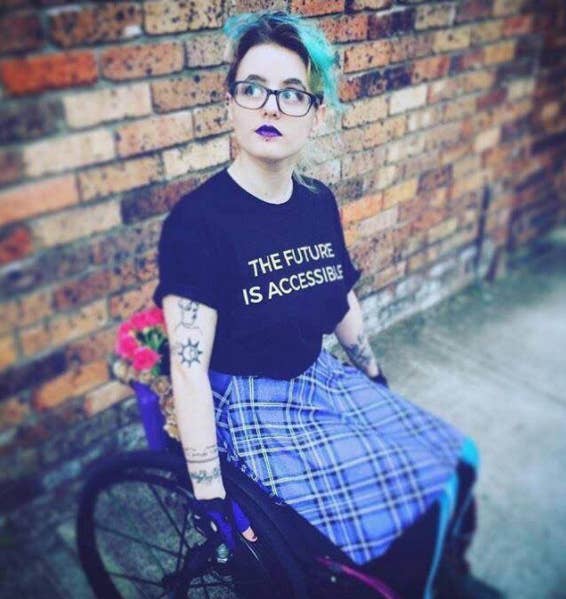
This is what it feels like to be transgender in America: Some days it feels like we’re creating possibilities and finally making the world safer for one another. Other days all we can feel are the devastating threats to our community as reactionaries try to shame and legislate us out of public life.
Earlier this year, the Trump administration withdrew Obama-era guidelines protecting transgender students, and just last month, Trump tweeted that transgender people cannot “serve in any capacity” in the military (though the Department of Defense still hasn’t received any guidance from the White House about implementing the ban). The same day Trump tweeted about banning trans troops, the Justice Department argued in a major federal case that the Civil Rights Act’s Title VII does not protect gay workers.
At the same time, legal avenues for the advancement of trans people’s rights are opening up in new (and controversial) ways. On May 18, A US district court in Pennsylvania ruled that Kate Lynn Blatt, a trans woman, could sue her former employer for discrimination under the Americans with Disabilities Act. Her former employer, Cabela’s Retail Outfitter, tried to argue that gender dysphoria was not covered under the act, but it was denied the motion to dismiss.
The court ruling has reignited a long-running debate about how we understand gender diversity. Is gender dysphoria protected under the Americans With Disabilities Act (and therefore a psychiatric illness requiring care)? This debate has been a centerpiece of trans discourse for years, with arguments today reflecting those in 2013 when the newly released DSM-V categorized gender dysphoria as a psychiatric condition. The development was an improvement from the manual’s previous edition's categorization of gender identity disorder — which described the act of identifying as a different gender as an illness in itself — but the 2013 decision still caused a split between trans organizations. Some spoke out against the continued pathologization of trans experience, and others focused on the way that this designation would make it easier for trans people to receive care.
Now the future of health care for the country at large remains an open question. While Senate Republicans failed to pass their last-ditch Obamacare repeal plan late last month, they haven’t yet completely given up the fight — and some health professionals assert that repealing the Affordable Care Act would devastate transgender Americans. In a society where transgender and gender-nonconforming people are far more likely than the general population to be unemployed, live in poverty, and live with disabilities, trans people’s access to safe and affordable health care is crucial to our survival.
I have been a transgender community organizer for over a decade. Despite all of the victories that have dotted recent history, I’ve found this current political moment to be one of the most stressful and frightening to be transgender in America.
As a disabled transgender woman in America, that stress is compounded. On any given day, I don’t know which part of my identity will be under attack. Transphobia and ableism are harsh realities of my day-to-day life, and of the lives of countless other Americans who share my experience.
Trans people with disabilities are among those most affected by these recent legislative and legal battles surrounding trans rights and the future of health care — but their voices have been strikingly absent from the national conversation.
So I’ve spent several weeks reaching out to them to hear what they think about the current state of health care, gender, disability, and identity. Responses have been edited for length and clarity.
Dom, 30, Nonbinary (New York City) — QTPOC Mental Health and Rest for Resistance

I don't consider transition-related care because of health insurance, living with financial insecurity, and the way my disabilities would impact physical transitioning. I instead cope with gender dysphoria through radical acceptance and working through internalized transphobia and gender constructs, and that's going okay, I guess. One thing that's an intersectional struggle for me is that strangers have so many questions about me on sight: What's my gender and sexuality? What's my race? Why do I look young and "healthy" but walk with a cane? It's too much to deal with sometimes, and I just stay home. I know I exist in all these in-between spaces as a mixed-race, disabled, nonbinary person, but it would be nice if people just treated me like a whole person and not a walking question mark.
There is a ton of ableism in the trans and queer community, and that's why I now only interact with other queer folks with disabilities, mostly trans people of color. We still struggle with internalized ableism, but can often support one another through that by being vulnerable, honest, and compassionate. Between racism, anti-queerness, and ableism, I basically keep to myself and focus on QTPoC Mental Health, networking with other activists and small grassroots organizations that address these complicated intersections. One group I highly recommend is National Queer & Trans Therapists of Color Network.
Niamh, 28, Nonbinary Trans Girl (Duwamish Land, Washington)
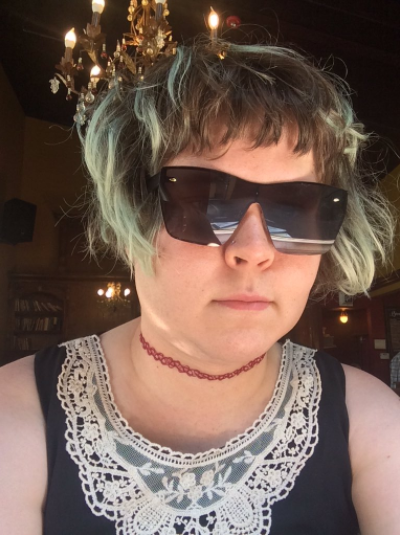
It took me a long time to figure out my transness because I was so preoccupied with my hemophilia, the arthritis it caused in my ankles, and my mental health. I've never had a moment where I haven't been conscious of how my body feels at any given moment. This means my disabilities (the list keeps growing) have informed the way I think about my gender identity and vice versa. Before I started doing any sort of medical transition, I first had to ask my hemophilia doctors is if that was a thing I could do. I was afraid they'd say no and I'd be stuck with higher levels of dysphoria. My gender identity is not respected in a medical establishment that believes that certain medical conditions are intrinsically gendered a certain way.
My gender identity and my disability leave me at the crossroads of several communities, but honestly never really part of any. As a nonbinary trans girl, I don't fit in with NBs (whose circles can be really AFAB centered) and I don't fit in with trans women, because I'm not a woman. When I'm in trans and/or queer spaces, I often feel aspects of my disabledness being reflected (parts of my mental health), but I don't see that in terms of other parts of my disability. I think I feel more comfortable in disabled spaces, where my gender identity and orientation are somehow easier to understand than my disability is to people who share my gender identities or orientation. Queer, disabled spaces are the best! Though I wish they would center on trans women and trans femmes more often.
Alex, 23, Nonbinary/Gender-Fluid (Detroit)
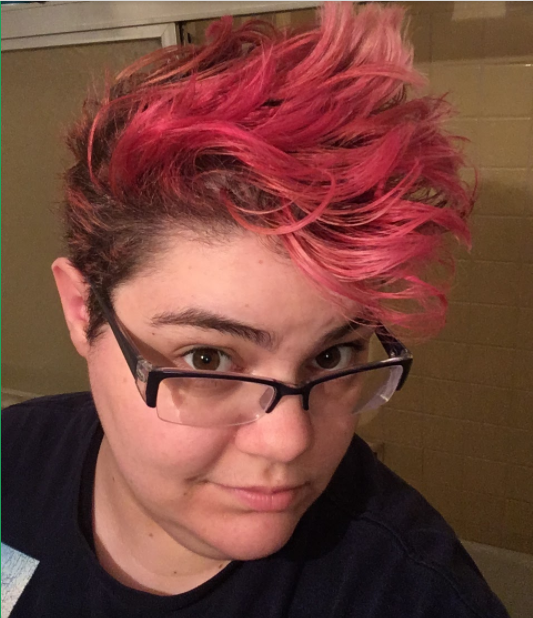
I turned to freelance illustration as my profession because of my physical disability — employers who seemed like they might hire me for general retail/service jobs very quickly changed their tune when they met me in person for the interview and realized I was missing a hand. Online commissioners care much less, prioritizing the quality of my work and frequently never even learning about my disabilities. I am not very a frequent participator in the general disabled or trans community, mostly out of fear that it might define me over what I want people to know about me instead: my art.
The ruling of this court case protecting a trans woman under the Americans With Disabilities Act is...complicated, to say the least. I am stuck between frustration that the ADA was the way this woman had to fight back, but appreciation that she managed to win something against an abusive employer. Gender dysphoria can be debilitating for sure, but I find that things that cause it to the point of distress generally fall under harassment rather than disability discrimination. Trans rights should absolutely be established as their own thing, separate from the ADA, and as soon as humanly possible.
Anna, 36, Trans Woman (Green Bay, Wisconsin)
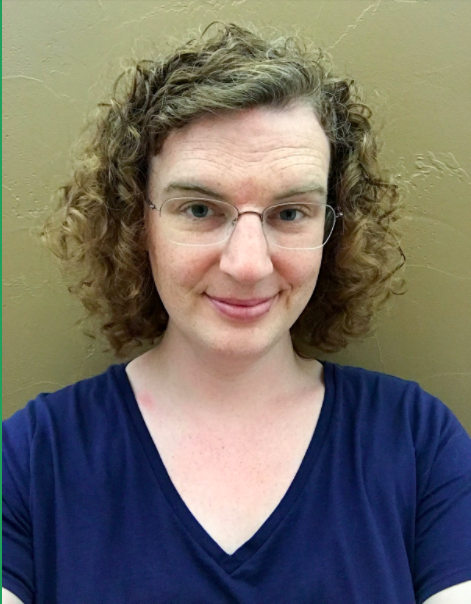
I've never been denied transition-related care because of a disability, nor has anyone used disability as a reason to deny my gender identity. With all that said, I've definitely downplayed and withheld information about my physical disability out of fear that it might impact my transition treatment or ongoing HRT maintenance. This especially concerned me since my disability involves muscle weakness and stiffness — and an estrogen/anti-androgen regimen is known to reduce muscle mass and strength in people where testosterone was dominant. I didn't want any questions or roadblocks to my treatment.
I don't really talk about my chronic pain with my primary care doctor. I certainly haven't sought any more treatments for it. Even though she's a competent and caring doctor, I still worry because she has power over my ongoing care and HRT prescriptions. I worry about medication being taken away — even though it's crucial for my physical transition and emotional well-being. As for my physical disability, I'm not really sure what I need or want for further treatment. What I do know is that even after four years, it's still hard to fully trust my providers when they have the power to act as gatekeepers.
Emory, 32, Nonbinary Transmasculine (Oregon)
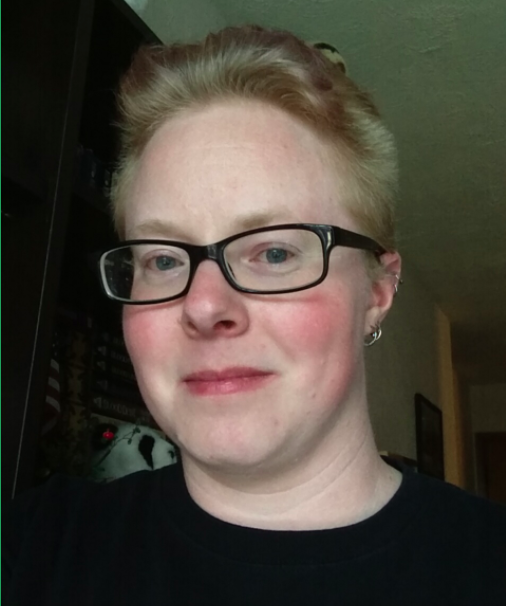
It's unfortunate that it is hard for people, especially cis people, to differentiate between being trans (not a psychiatric condition) and gender dysphoria (which is). But just as we provide help for people dealing with other conditions (anxiety, depression, etc.), providing accommodations for gender dysphoria is not unreasonable and can dramatically improve mental health. In an ideal situation, people would just respect the gender identity of their employees and this wouldn't be a problem, but we aren't there yet.
Kirsten, 29, Genderqueer (Wisconsin) — ChronicSex.org
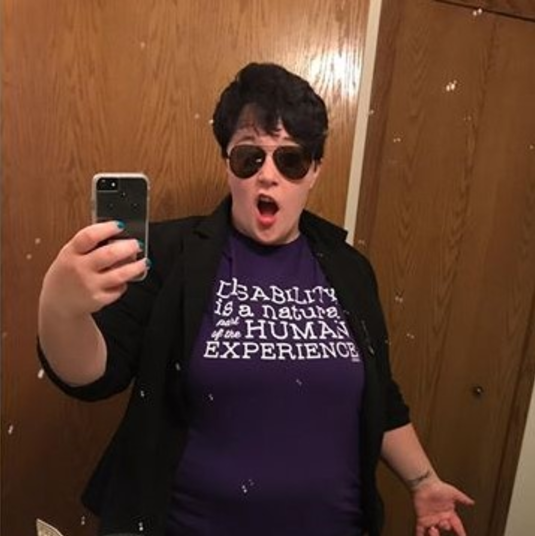
When the ACA was passed, I was finally able to get insurance and care for the first time in over a decade. For the first time in my life, my potentially fatal systemic juvenile idiopathic arthritis (SJIA) is actually under control and has been for nearly two years. My quality of life is improving drastically and I am able to start conducting research, traveling, and presenting at conferences, and finish my masters. The ACA quite literally saved my life.
Dysphoria can be a very intense experience. It's on par with my PTSD attacks, honestly. I don't want to belittle how it can affect our lives. That said, covering gender dysphoria under the ADA for this reason seems odd. There should be a way to sue for discrimination without needing to associate gender-related issues with disabilities. That said, I can understand how there are not laws put in place for gender-related protections the way there should be. We need to fight for those to exist instead of using disability laws, I think.
Oliver, 21, Transmasculine (Rochester, New York)
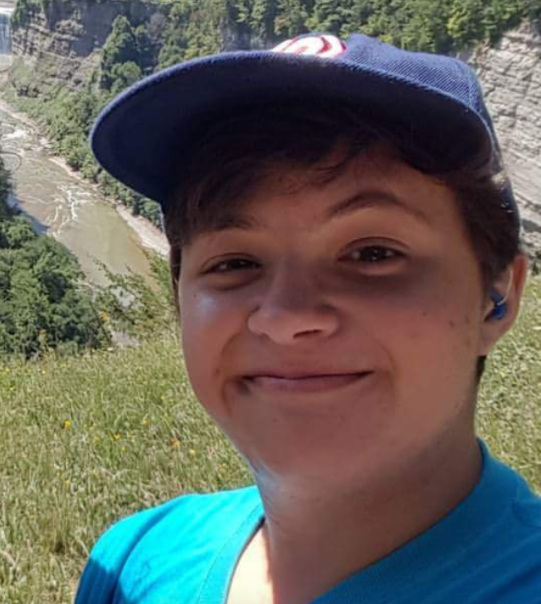
Being hard of hearing has absolutely affected my transition-related care. When I was younger, I was sent to therapy. I remember sitting in this big chair, not understanding a single word of what the therapist was saying. I just sat there for the hour and left. After five sessions of this, the therapist gave up. In retrospect, if I had actually been able to communicate with mental health professionals, I could have gotten things sorted much more easily and gotten the support I needed. Even today, when doctor's offices forget to book ASL interpreters for my appointments, I misunderstand what doctors are saying.
I'm involved in both the Deaf community and disability community. There's some overlap, but there's a large number of Deaf people who don't identify with having a disability or with the disability community because lack of a shared language. A huge problem for the Deaf community is lack of access. This includes lack of access to online material, formal education, and incidental learning (e.g., learning something by overhearing conversations) — really, anywhere that you can learn about trans topics. So it's unfortunate, but there's a lot of transphobia in the Deaf community just because so many people haven't been given adequate opportunity to be exposed to this kind of information.
I've been involved with the LGBTQ community for 10 years and I can count on one hand the number of totally accessible events I've attended. Not considering disabled members of the trans community is an ableist action. Whether it be having to climb stairs to get somewhere or not having an ASL interpreter or a perfume-free environment, these small barriers really do add up and prevent us disabled people from being involved in our very own community. Though our trans siblings without a disability are our allies, they still don't have a disability and do (unintentionally) contribute to our oppression.
Naseem, 25, Nonbinary (Reno, Nevada)
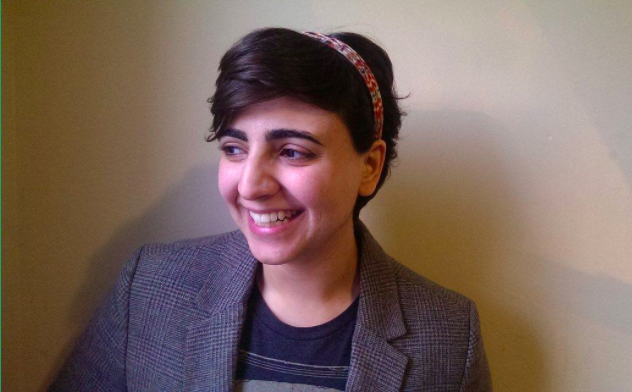
I'm a Chicago native who spent eight years as a scientist, even going so far as to starting a PhD program in Philadelphia last fall. My parents are Iranian immigrants, and I was raised in a Sufi center. I spend my days freelancing, but my true love is novel writing.
Not having an insurance plan is not an option for me. I take a lot of pills that would cost upwards of $500 a month if I didn't have insurance. My husband is a student, so I don't know what his insurance might look like in the future. Frankly, I'm scared. I take meds that regulate my mood and my androgen levels, the latter of which is tied intimately to my gender and transness. I can't afford them without insurance, but I can't live without them either.
Not everyone who is trans has gender dysphoria. For some people, they just realize their gender didn't align with what they were designated at birth, and they feel more comfortable as a different gender. It would be dishonest to say that gender dysphoria hasn't caused me distress, though, which is part of what classifies a mental illness. For many people, their dysphoria is disabling in this way, and it does cause significant disruption to their lives. Making transness a medical "condition" can help some people transition medically, which can alleviate the dysphoria. On the other hand, pathologizing transness adds to the stigma and the "they're just confused" rhetoric often spouted by right-wing people. There isn't a good answer for this, because transness is experienced differently by every one of us.
Robin, 23, Nonbinary (Sydney) — Robinmeames.org
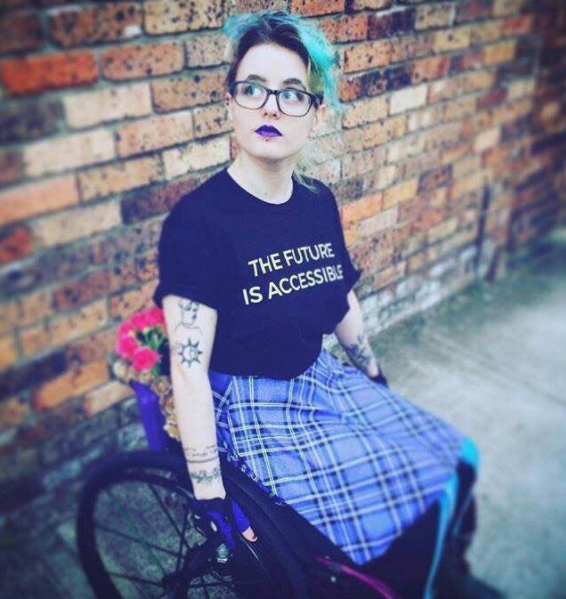
Because I'm a wheelchair user, people see me as incapable of having a gender identity, so often they will correctly avoid using gendered language or pronouns to refer to me, but it's not because they're recognizing and respecting my identity as a nonbinary person — it's because they think my wheelchair automatically makes me genderless. It's not misgendering as such, but it's degendering, and it's a different kind of harmful and it's part of a larger system of ableism that considers me less of a person because I'm disabled and a wheelchair user.
I had an endocrinology appointment for the purposes of diagnosing and treating a parathyroid adenoma, and I came out of it with a medical report that began with "Robin is a 22-year-old transgender who is in the process of managing this with [their] care providers" (only it didn't use my correct pronouns). There's a phenomenon called "trans broken arm syndrome" where basically no matter what you're there to see a doctor about — a broken arm or a parathyroid adenoma or whatever else — they'll end up focusing on your gender identity to the exclusion of everything else, often to the point of deciding that whatever other medical issues you might be having are a result of being trans.
s.e. smith, 32, Gender: It’s Complicated (California) — DisabledWriters.org
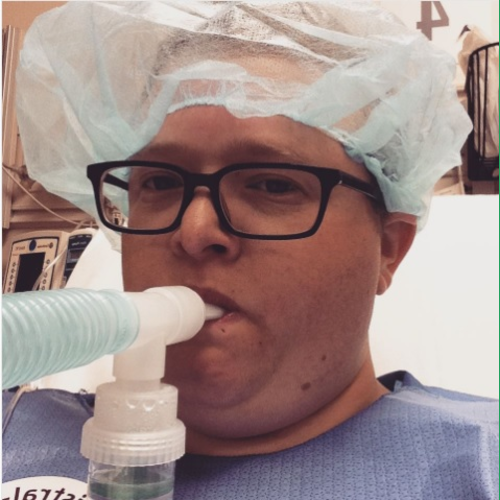
I don’t view being trans as a disability, and don’t think it should be covered by the ADA. However, that’s in a perfect world, and we don’t live in a perfect world. Given that we effectively have to medicalize and pathologize our gender in order to receive transition services, shouldn’t we argue that the same pathologization entitles us to protections afforded to other people with accommodation needs? Isn’t denial of transition services disabling in itself, by forcing people to experience mental and physical distress? In other words, if you’re going to make us act like our gender is a medical problem, we’re going to avail ourselves of the laws that protect other people with medical problems. It’s a fine needle to thread.

There are many parallels between transgender and disabled experience. Our bodies are medicalized and modeled as deviations from an idealized body — a platonic ideal “able” or “cisgender” existence — and the further we deviate from that ideal, the less acceptable we are in society. We rely on a system of gatekeepers and are often coerced into fulfilling unnecessary and biased expectations if we want to receive care. We are conditioned to strive for normalcy
— a body with a disability is expected to strive toward able-bodied ideals just as a transgender person is expected to strive toward patriarchal expectations — and we are punished for deviating from a value system that demands compliance.
Transgender people have become experts at making beautiful lives out of scraps. We suffer in a misogynistic, patriarchal, racist system and play a role to access lifesaving treatment. We build communities out of nothing. At the end of the day, if the ADA ruling means less discrimination for trans people, most of us will roll with it. We are a pragmatic, flexible community.
Mahdia Lynn is a writer, educator and community organizer. She is the director of Masjid al-Rabia, a woman-centered LGBTQIA+ affirming mosque in Chicago. You can learn more about her at her website or follow her on Twitter.
UPDATE
This post has been updated to include more descriptive image captions and the writer's bio.
UPDATE
This post has been updated to include some subjects' personal websites and projects.
